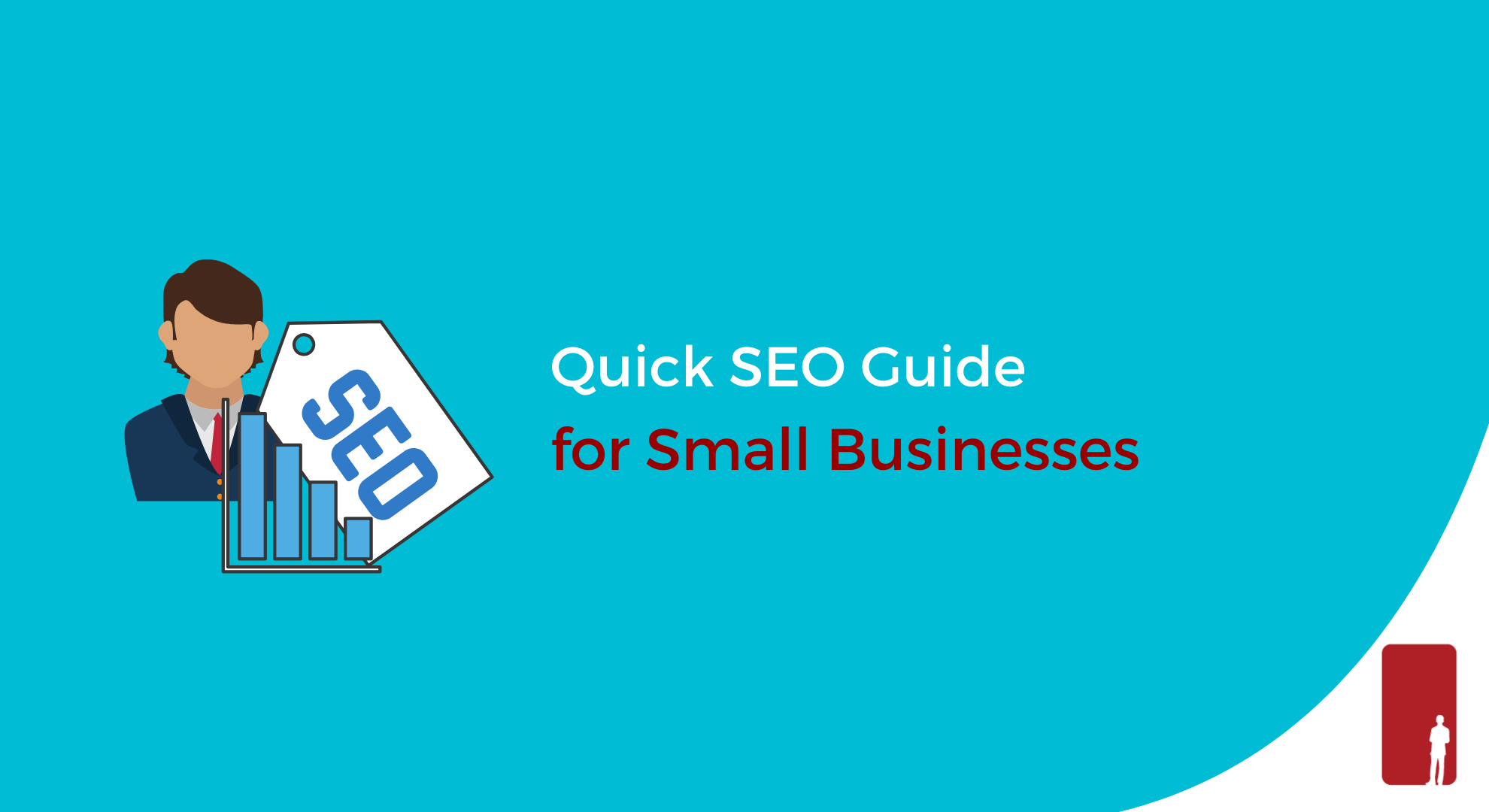Establishing your Online Presence as a New Business Owner
Deciding to venture off and be a new business owner is an exciting time. Albeit exciting, any existing or new business owner knows that the first stage of opening your new business is tough, painful, risky, requires long hours, and can be stressful at times.
You are trying to get your business off the ground and you start to realize that prioritizing your time will be a challenge. Where do you spend your time? Is it in business development? Maybe you should set up a good accounting system to avoid future pains, or maybe you should spend some time hiring because getting the right people at this stage is key.
Getting caught up in the whirlwind of necessary activities leaves very little time for important but non-urgent activities. We all fall for it. Establishing your online presence as a new business owner at the beginning stages is crucial to have long term success.
Below you will find some items to do in order to establish your online presence as a new business owner.
Get a website

Don’t push it aside for later. It takes time to develop your online presence and the longer you push this aside, the longer it will take for you to be found.
Nearly 50% of small businesses in Canada do not have a website. Here is what they are missing out on:
- 95% of consumers use search engines to find local businesses. Appearing on popular search engines like Google is directly associated with your website. (Source: searchengineland.com)
- Your website is open 24 hours a day, 7 days a week to provide information to your consumers
- Businesses that do not have a website lack credibility. If a potential consumer wants to know more about you but can’t find you online, they might second guess doing business with you.
- Competitors that have websites are taking business away from you
I’m sure there are a dozen or more reasons why you need a website, but we’ll save that for another day.
Related Article: Quick SEO Guide for Small Businesses
Create high-quality content on your website

When the Internet first came about and businesses were creating websites, they treated them more like an online brochure. It was effective back in the day but now websites are best utilized for more than just who you are and what you offer.
You’ve likely heard this before, but it bears repeating—content truly is king. Quality content not only drives traffic but also establishes your credibility in the eyes of both users and search engines. When your content is informative, engaging, and authoritative, it builds trust with your audience and solidifies your position as a reliable source in your industry.
Having a section on your website for a blog or original articles tailored to your audience will allow you to create a community of people that will keep coming back for more.
Small businesses with blogs get 126% more lead growth than small businesses without.
Let’s not forget the benefits of Google loving relevant content and making it available for searchers to find giving you even more people that know people to join your community. The organic momentum from this compound to something greater than you could have ever imagined.
Get on social media

Social media is not just about liking pictures and entertaining yourself. If you’re a small business owner, there are a variety of reasons to get onto social media.
A staggering 67% of the population in Ontario, Canada use social media. Those that use Facebook specifically spend on average 40 minutes a day on this social platform.
Outside of the large audience, having a social media presence helps with brand awareness, loyalty, and authority. Consumers and search engines will establish more trust behind your brand when you’re available on social media.
Similar to your website, having a presence on social media isn’t just about showcasing who you are and what you do. Remember that cool content that you are producing on your website? Share it on social media! Your reach will now exponentially increase.
Related Article: 7 Reasons Social Media Marketing is Still Underrated
Being available on social also gives you the opportunity to improve your customer service. Giving consumers a platform to express delights and frustrations gives you, the business owner, a chance to show gratitude and gain valuable feedback. Those that are upset will allow you to try and turn an unhappy customer into a happy one.
There is quite a bit of platform you can choose to establish your social media presence. Don’t try to get on every platform. Find what works for you and your industry and stay active. It’s better to have one social media account and be hyperactive vs being on 4 and not being active.
Register your company and website on business directories

Staying consistent with various points made in this article, registering on online business directories helps to further increase your online presence.
Ultimately, you want to be found online and there are a plethora of directories that you can register on. There are free ones and paid ones, so do your due diligence on finding the right one for your business. Here is a good list of online directories to check out.
Once you establish your website and social media accounts with relevant content you can point these sources to these directories. In turn, these directories will work on your behalf to point consumers to you.
You will now be accessible, visible, and reputable once you tie all of these components together.
Remember, getting your online presence may seem non-urgent but it is very important. It is a lot of hard work that requires nurturing in order to develop but the rewards will be well worth the time.
About Retailors Group
The team at Retailors Group has over 15 years of retail sales and field marketing experience. Retailors Group takes the time to understand your brand and align your core values into a tailor-made solution that builds a long-lasting relationship with your consumers.
We offer services in Experiential Field Marketing, On-site Sales Assist, Retail Management, and Digital Marketing.
Quick SEO Guide for Small Businesses
If you’re like most small business owners, you’ve tried different methods of traditional marketing. These methods of traditional marketing include print advertisements such as direct mail and newspaper print ads.

However, you’ve probably overlooked methods of digital marketing despite its importance because you don’t understand it. It is crucial for small businesses to have a digital marketing strategy as it adds credibility to your business and offers a greater return on investment.
What we will cover today is an SEO guide for small businesses which will hopefully give better clarity on how it can help you.
What is SEO?
SEO or Search Engine Optimization is the process of getting traffic from “organic” or “non- paid” search engine results. SEO is required to increase awareness in search engines such as Google, Yahoo, and Bing to improve rankings and drive traffic to your website.
Have you ever wondered how websites or local listings are shown and ranked on search engines? Search engines rank websites and local listings according to their relevance to the public. Having good SEO makes it easier for search engines to understand your content for a higher ranking and an improved user experience.
Do I need SEO for my website?
Yes, you need SEO for your website because most Internet users use search engines to look for what you’re offering. Since search engines provide targeted traffic, the words users type into the search box is valuable. If search engines cannot find your site based on the search query, you miss out on opportunities of getting traffic driven to your website.
How can I improve my SEO?
There are three ways you can improve your SEO:
1. Website usability and appearance
Your website should be responsive and organized. This means that it should be easy for users to navigate through your website to achieve their objectives or find the information they need.
2. Using the right keywords
The visibility of your website depends on the right keywords. You should consider how you would search for things online. So, your keywords should be as specific to your business as possible.
3. Creating original and shareable content
It is important to create opportunities for your business. You can do this by sharing your content such as photos, videos, and blog posts on social media, as well as bloggers and influencers. This will help to increase the rank and visibility of your website when users are searching for your business on search engines.
Can I do SEO for myself?
SEO can be difficult enough to make your head spin. However, even understanding the basics can make a big difference. Depending on your time commitment and willingness to learn, you may decide to use this SEO guide and take on SEO yourself or hire an expert to handle it for you.
There are many digital marketing companies like Retailors Group who can help you tailor an online marketing strategy that will increase brand awareness, customer loyalty, and generate more leads for sales.
7 Reasons Social Media Marketing Is Still Underrated
The numbers on social media marketing are impressive. More than half of small businesses in the United States are planning to increase their social media marketing budgets in 2017, and the number of businesses using social media marketing has increased, year over year, for more than a decade.

Still, social media marketing remains underrated. Business owners and marketers frequently treat it as a second thought—something for an intern to handle, rather than a strategically deep mode of building your reputation and attracting new traffic. Some have even abandoned the idea altogether, refusing to spend any time or money on a strategy that nets a positive ROI for up to 92 percent of businesses that use it.
So what’s the deal? Why isn’t everyone on board with the strategy?
The "fad" angle
Believe it or not, some people still believe that social media—or its use as a marketing strategy—is still a fad just waiting to fizzle out. This is an argument I could have understood back in 2007 when social media platforms were only in use by a small percentage of the population. But now that Facebook has reached more than 1.2 billion users and is still growing, with a corporate foundation that rivals those of Apple or Google, it’s a hard argument to defend. Users have gotten used to the idea of socially interacting online, and platforms keep evolving in new ways to maintain their interest.
You get what you pay for
Psychologically, people tend to place more value on things that cost more money. For example, in a blind taste test of identical wines whose only difference is the price, people claim that the more expensive (yet compositionally identical) wine tastes better. Take this principle to social media marketing; it’s free to claim and build a business profile, and to post regularly (as long as you aren’t leveraging paid advertising). Because of that, people don’t value it as much as they do paid advertising. They’re also less likely to pay a professional to work on a social media campaign, knowing that—technically—anyone could do it for free (even if they never actually do it).
Unmeasurable effects
The return on investment (ROI) of social media is hard to measure, and I’ll be the first to admit it. One of your biggest goals is attracting a large following of people who are enthusiastic about your brand and improving both your brand’s reputation and brand awareness. These aren’t as objectively measurable as on-site conversions, but they can and do lead to greater consumer interest, which manifests as sales eventually. Trying to pin down an exact value for all these benefits is next to impossible, even for the pros, so the value of a social media campaign is almost always underreported.
Anecdotes
People also use anecdotal evidence as a basis for their opinions about the strategy. For example, they may know of another business that used social media and didn’t see any results, so they stay away from it in the present. However, these anecdotal examples often don’t examine the types of tactics these businesses used, and they certainly don’t represent the average across multiple businesses.
Related Story: How To Boost Your SEO Using Social Media
Apples and oranges
Ironically, these same business owners often cite the fact that anecdotal evidence can’t prove a strategy’s effectiveness for everybody. They point to major influencers or big businesses in the social media world and explain that social media works for them because it fits naturally with their industry, or because they have the resources to invest in a heavy campaign. It’s true that some industries may be naturally inclined to perform better on social media than others; tech companies and consumer-facing businesses are two good examples. However, social media marketing can be used by practically any company—it may just require an adjustment to your approach.
Poor targeting
Some businesses look at their own results and use those results as a gauge of the long-term potential of their campaign. But they may not realize that their strategic targeting is interfering with their results. For example, if you buy 1,000 followers using some super cheap follower-adding service, but only 4 or 5 of them ever interact with your posts or visit your site, it could be that the remaining 995 don’t belong to demographics relevant for your business, or that you haven’t been using the right engagement strategies to cultivate interest. Don’t underestimate the potential of a well-researched, strategically focused campaign.
Lack of investment
Effective social media marketing can’t be done on a whim. It needs to be planned, researched, and strategically executed. That means you’ll need to spend a significant amount of time or a significant amount of money to see results; and since many business owners aren’t willing to make that investment, they never see a fraction of their potential results. By that point, they’ve seen what a small investment does, and they’re unwilling to make the jump to a larger investment.
Social media marketing isn’t an “underground” strategy; it’s talked about heavily (and I should know), and there’s no shortage of content covering its feasibility and best tactics. But the perceptions of marketers and business owners are still lagging behind the evidence, and they’re only hurting themselves in the process.
The more you learn about the effective implementation of social media marketing, the more plainly beneficial it seems—but you have to treat it as a legitimate marketing strategy if you want to research it appropriately.
Article courtesy of www.forbes.com written by Jayson DeMers
Find out more about how Retailors Group can help with Social Media Marketing.

